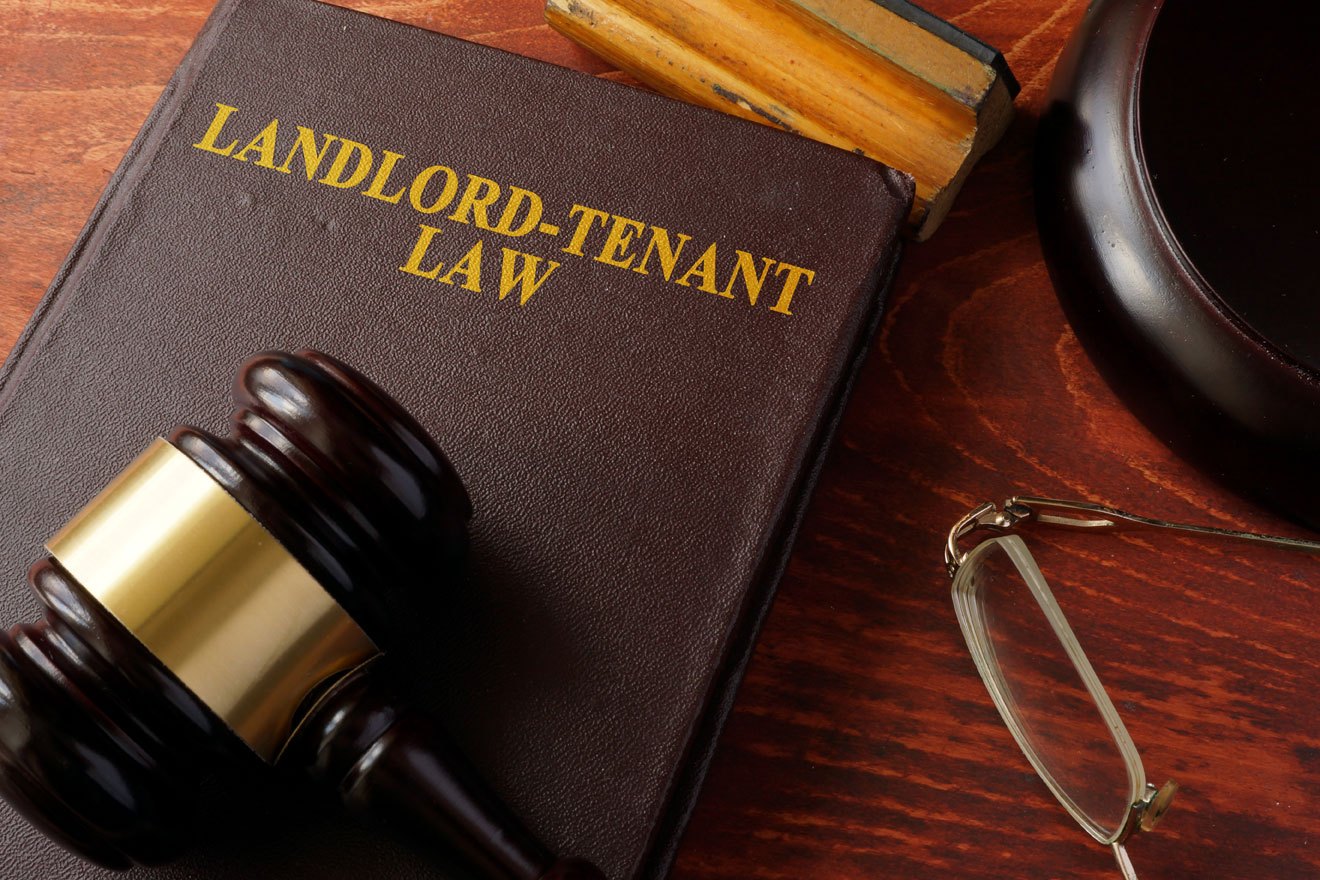When you can’t resolve an Eviction on your own, there are laws that a Landlord or a Tenant must follow. Ultimately, you’ll learn the best approach to complete an Eviction and protect yourself as Tenant. Understandably, the law is complex. Therefore, we will help you understand the Process as well as the cause of disputes.
The Reality and Rationale Behind the Eviction Process
Eviction is the process that Landlords must go through to remove a Tenant that violate the Lease. This can be a tense situation. When tempers flare, communications become a challenge as each party feels that they have been wronged. Ideally, the process is easier when there is a written lease agreement. But occasionally, Evictions do happen when no lease is present. Furthermore, in some instances, Landlords and renters work out a month to month agreement. In such a case, they hold the right to deliver a month to month Eviction notice. In the end, it is best to complete the process of evicting a tenant with the help of an Eviction Lawyer.
Different Types of Notices
Landlords can complete an Eviction without much difficulty if the Tenant agrees to vacate. In these instances, there is no need to hire an Eviction Lawyer.
The following are the different types of notices you can send under the Florida Eviction laws when you have cause to evict a renter.
3 Day Eviction Notice
Sometimes Tenants do not pay their rent. As a result, the Landlord can send a 3 day Florida Eviction notice instructing them to pay or leave within 3 days. If they choose not to pay and leave within 3 days, you can file an Eviction. Weekends and holidays are not included in the 3 days.
7-Day Eviction Notice
This notice is applicable when Tenants violate a section of the lease that can be corrected. It requests a correction of the noncompliance to the agreement within 7 days or the lease is terminated. If you do not receive a response, you can file an Eviction with the help of an Lawyer.
On the other hand, there are violations committed by a Tenant that cannot be corrected. 83.56 defines a violation of this type as Destruction, damage, or misuse of the Landlord’s or other Tenants’ property by intentional act or a subsequent or continued unreasonable disturbance. If their actions are found to be in violation of this Statute, a Landlord can serve them a 7 Day Notice of Termination. Unlike a Notice to Cure, they must vacate the property within 7 Days. Failure to leave allows a Landlord to file an Eviction.
How to Evict Someone in Florida Without a Lease?
Evicting a Tenant without a lease is much easier than Evicting them with a lease.
- 15 day notice: This is only effective in a month to month agreement. You can send it which alerts your Tenant that their agreement is ending. It must be sent 15 days before rent is due. For example, if you want your Tenant to vacate the premises by March 1, you must send it by February 15.
- Fixed lease agreements (6 months – 1-year lease):A Landlord may only terminate such an agreement without cause after it has come to an end. In such a case, you are not required to give notice unless the rental agreement explicitly states so.
Different Causes of Eviction in Florida
Multiple reasons can motivate a Landlord to initiate the Eviction process.
 However, since Tenants are protected by the law, they are not allowed to evict them without adherence to due process. Common reasons for Eviction include:
However, since Tenants are protected by the law, they are not allowed to evict them without adherence to due process. Common reasons for Eviction include:
- Non-payment of rent
- Lease violation
- Property damage
- Illegal activities
- Expiration of lease
Let’s take a look at each of these.
Non-payment of Rent
Ideally, every Landlord expects their Tenant to pay on time. Unfortunately, some don’t honor their end of the bargain. Before you allow anyone to occupy your rental property, it is vital that they agree to the terms of the rental agreement.
Some agreements include penalties and periods a Tenant may occupy the unit/dwelling before they can be evicted, even if they have not upheld their commitments. However, once this period is over, if they still don’t comply, you will have no choice but to send a notice. If your Tenant neglects to meet the terms of the notice, you can file an Eviction.
Lease Violation
Another reason that a Landlord can evict a Tenant is if they violate non-monetary terms of the lease. In this situation, you may send a notice to remedy the issues; however, if your Tenant does not respond,you can begin the Eviction process.
Some of the common lease violations that are considered as a legal reason to evict a tenant are:
- Unauthorized pets
- Unapproved guests or occupants
- Illegal subletting
- Wrong use of property such as turning residential property to a commercial one
- Too many disturbances.
Rental Property Damage
You can initiate the Process if the Tenant causes property damage. Extensive damage indicates extreme circumstances that go beyond regular wear and tear, such as scratches or chips in the paint.
For example, a large hole in the wall or floor are beyond regular wear and tear. To remedy this situation,you can ask your Tenant to fix the problem at their own cost, or if the parties cannot come to an agreement to fix the damage, you can evict the tenant. You must send a Florida Eviction notice, even under these circumstances.
Involvement in Illegal Activities
A Landlord can evict a renter if they are involved in criminal activities such as drug-related crimes. In these instances, you should also alert law enforcement and local councils to the illegal activities.
Crime is a serious offense that warrants invoking Florida Eviction laws. However,it is worth noting that the Florida Eviction process timelines do change if there is a crime involved.
Expiration of Lease Agreement
When lease agreement terms expire,you have the right to evict a renter without any cause. If they refuse to move out after the lease has expired, you can file a lawsuit against them with the help of an Eviction lawyer.
Different Ways to Prevent an Eviction
The best-case scenario in a dispute is to agree before filing any lawsuits. So far, we’ve shown you what rights a landlord has according to the law. Now, let’s take a look at some of the ways Tenants can prevent or delay an Eviction.
- Negotiate with the Landlord
- Comply with the Notice
- Attend the court proceedings
Additionally, some situations fall under Constructive Eviction laws.
Negotiate with the Landlord
As a Tenant, negotiating is the best way to settle a dispute and avoid going to court. When you receive a notice, you should talk with them to see if you can come to an agreement.
A lawsuit costs money, both for you and the Landlord. The best-case scenario is that they agree to stop the Eviction if you agree to certain terms. For example, they may decide to halt the eviction if you agree to pay the rent or remedy your violation of the lease agreement.
Additionally, if the dispute is over non-payment of rent, you may be able to renegotiate your terms to be allowed to pay on a later date. If you come to an agreement with your landlord, you should document the terms of your agreement, and both parties should sign the document for protection.
Comply with the Eviction Notice
In some instances, there is no reason to engage your Landlord.

For example, if the reason is for non-payment and you can pay the past amount, you should do so. Another example is if you receive a remediable notice. In this case, simply follow the instructions, if possible.
According to the Eviction statutes, a Landlord of a rental property is not allowed to proceed with an eviction if you satisfy their demands. However, if you are unable to comply on time, you can request an extension to the timeline. For example: if the notice states that you must pay in 3 days, you can talk to the Landlord to extend to a period you are comfortable with.
Again, when you agree to any new terms, you should document everything in writing.
Attend Court Proceedings
When a Landlord and Tenant cannot agree upon a solution, or when the Tenant does not or cannot comply with the notice, the last resort of a landlord is filing a lawsuit. Upon the filing of a lawsuit, you will receive the necessary paperwork and be required to respond to the Landlord’s complaint against you.
Constructive Eviction in Florida
This refers to unlawful actions by the Landlord. This includes terminating utility services that are provided to the Tenant during the lease. Florida Statute lists these services as water, heat, light, electricity, gas, elevator, garbage collection, or refrigeration. In addition, they are not allowed to prevent them from entering the property by changing the locks.
How to Fight an Eviction in Florida
As a Tenant, the Law does provide you protection. When you feel that you are being wrongfully evicted, you can file defenses for one or more of the following:
- Improper notice: They must contain specific elements. For starters, it must be in writing. Secondly, it must meet all the requirements following State Law. For example, a grace period of 3 days, not including legal holidays or weekends. Furthermore, the following can void a notice:
- It displays the wrong amount due
- The late fee amount indicated is different from the actual figure
- When a Landlord does not keep up the rental property: The Laws provide rules and regulations that must be followed regarding the upkeep of the property. Therefore, if they do not comply, you can cite this defense as a reason for your refusal to pay rent. However, you must give them notice 7 days before noncompliance. If the Judge rules in your favor, you may receive a reduced rent amount. Moreover, you must also comply with the Laws that require a deposit of the rent due to the court registry.
- Prohibited and unlawful practices: These defenses come with the caveat that you must act in good faith before raising such a defense.
How Long is the Eviction Process in Florida?
An Eviction can take between 3 to 4 weeks, depending on different factors. These factors include:
1. If it’s for Non-Payment or Non-Monetary Violations of the Lease
2. Tenant deposits rent into the Court Registry
3. Mediation is Ordered
4. If a Rent is deposited into the Court Registry
5. Notices contained the correct information
How Late Can Rent be Before Eviction is Feasible?
If a Tenant does not pay their rent on time, they are given a three-day notice. If they do not pay, the Landlord can file an Eviction. The Tenant will be compelled to clear the rent due unless their defense can justify non-payment.
Is Eviction a Public Record in Florida?
As stated above, Evictions are categorized as civil matters guided by the rules and regulations prescribed by the legislature. Therefore, just like other civil matters, Eviction proceedings are public record.
Can You Evict Under New Ownership?
Yes. However, the new Owner must honor the existing lease. Therefore, when purchasing a property, it is important that they are aware that a Tenant already resides in the property.
What Do You Do if You are Served a 3-day Notice and Can’t Pay?
In this instance, you can ask for an extension from the Landlord, move out, or risk a lawsuit.
Will Filing Bankruptcy Stop an Eviction?
The Filing of Bankruptcy will only stop an Eviction if a Final Judgment of Eviction has not been entered.
How Much Does It Cost to Evict Someone in Florida?
The cost depends on the Lawyer and how much they charge. However, our firm charges a Flat Fee for all Evictions that includes Attorney’s Fees and Court Costs.






 However, since Tenants are protected by the law, they are not allowed to evict them without adherence to due process. Common reasons for Eviction include:
However, since Tenants are protected by the law, they are not allowed to evict them without adherence to due process. Common reasons for Eviction include:











